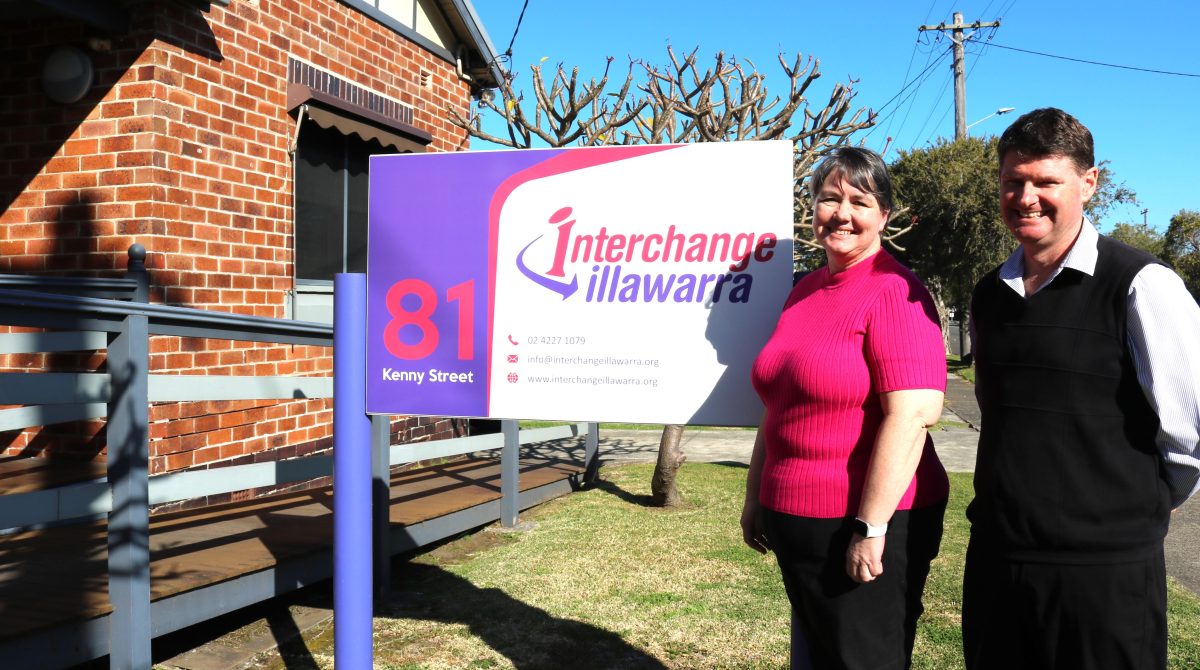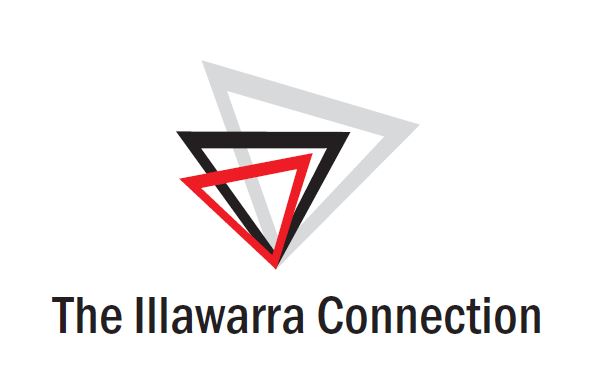
Interchange Illawarra support coordinator Kylie White and CEO Jake Pearson. Photo: Jen White.
Imagine your job is to be on call 24 hours a day, seven days a week, 365 days of the year.
Your social life is practically non-existent and finding the time for a cuppa with friends or a haircut is almost impossible.
Now imagine doing all of that and not being paid a cent for your work – that’s the life of a carer.
Interchange Illawarra CEO Jake Pearson deals with vulnerable and exhausted carers every day and is frustrated at the lack of recognition they receive for their unpaid roles.
“We’ve got a system that doesn’t support people to continue to care and pushes them into institutional and very expensive models that aren’t the choice of the person or the family. Madness, absolute madness, and ultimately more expensive for the Government,” he said.
Interchange will be making a submission to the Federal Government’s current inquiry into the recognition of unpaid carers.
The inquiry is tasked with examining the effectiveness of the Carer Recognition Act 2010 in acknowledging and raising awareness of the role of unpaid carers, and will consider if legislative reform is needed.
At least 2.65 million Australians, including 854,300 people living in NSW, provide ongoing care and support to a family member or friend. Some provide around the clock nursing to a family member with high care needs, while others support people who are fairly independent, but may need someone to keep an eye on them, or help with daily tasks.
But the one thing all carers have in common is that they are unpaid, even though they save governments billions of dollars every day which would otherwise be spent on building facilities and providing staff to deliver the care.
Interchange is a Wollongong-based not-for-profit disabilities support organisation which has been providing respite and carer support for more than 40 years. It self-funds carer and health wellbeing programs, social activities, capacity building activities and provides opportunities for carers to get together and be with people who are in the same situation – “do stuff for themselves, which never happens”.
“We see ourselves as an extension of the family. We know that by and large carers are quite isolated because of their caring role and because of the intensity and the exhaustion,” Jake said.
“The NDIS is a big part of this whole picture, and something that hasn’t really lived up to its expectations from a carer’s perspective. Certainly in other areas it’s been wonderful, but not in terms of supporting carers.
“Our experience is that respite [for carers] is generally not valued by the NDIS as being a reasonable and necessary support for carers to maintain the caring role and effort and is seldomly funded appropriately.”
Interchange support coordinator Kylie White knows first-hand how tough the life of a carer can be. As well as working full-time, she cares for two sons with disabilities. Her 21-year-old son requires significant support and can’t be left alone.
Like Jake, she stresses the advent of NDIS has been beneficial for people with disabilities, but is failing carers.
“The NDIS was put in place for the person with a disability. It’s about supporting that person, but it doesn’t recognise that supporting that carer supports that person. If a carer asks for something, and it’s not directly linked to a goal for the person with a disability, it doesn’t qualify,” she said.
“As a carer, you can’t say, ‘I need two weeks respite because I need a break’. It’s got to be tied to something else as well. The person with a disability sets a goal and has a plan that says basically in the next couple of months, I want to support my carer so they can continue to support me.
“You have to say if this doesn’t happen, I can’t continue to do these things. And he or she is at risk because of that. It’s quite degrading as a carer because you effectively have to say I can’t do this anymore.”
Lack of support and respite opportunities for carers often results in their loved ones with disabilities being moved into group homes or other supported accommodation against their wishes.
“It’s completely crisis driven, there’s no sense of building the capacity of the family,” Jake said.
“We’ve seen people move into supported independent living, which is group homes, well, well, well before they should have and before they wanted to, and before their parents wanted to, because they didn’t receive that respite support to keep them at home and keep everybody functioning the way they should.”
“I know someone whose family members don’t know that their person is living permanently in a group home because she is worried about what the family would think,” Kylie said.
“Because the community attitude is that you look after your family. It shouldn’t be like that but it’s inbuilt in the community from birth.
“There is a narrative out there that if a carer complains or asks for more, they’re seen as saying that the person with a disability is a burden to them. It’s like, I’m stressed because you’re where you are – which it’s not.”
The 2020 National Carer Survey revealed carers regularly have their own chronic health problems, are unable to work due to their caring commitments and therefore face financial hardship and a majority go through relationship and marriage breakdowns.
“We support 270 families and we know particularly when people have got high support needs that the amount of government support through NDIS is not enough to maintain full-time employment. People are living close to the poverty line,” Jake said.
“We work with families who are in distress all the time. We know that economic participation is one part of employment but it’s more than just that, it’s about social participation.
“There’s an opportunity to reduce isolation, and it also provides a respite effect from caring. If you’re not going to work, then you’re at home doing this thing that’s hard and stressful with no money all day, every day.”
In its submission to the Federal Government inquiry, Interchange will advocate for a system similar to those operating in other parts of the world, which quarantines funds for respite.
But above all, Jake and Kylie say they will be pushing for recognition for carers.
“We would like to see formal recognition that the health and wellbeing of any person is directly related to the health and wellbeing of the carer, and for that to be fostered and nurtured. If carers go down, everything goes down,” Jake said.
“We need that formal recognition that vulnerable people will not survive and live a high quality of life unless their carer does.”
Further information about the Federal Government inquiry, including the terms of reference and how to make submissions, is available by clicking here. Submissions close on Friday 11 August.











